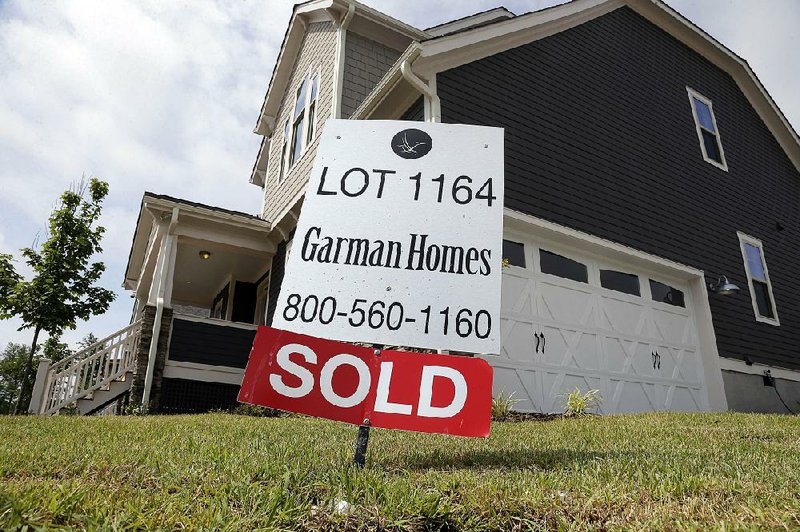WASHINGTON -- Slightly more Americans signed contracts to buy homes in July, as pending sales edged up after dipping in June.
The National Association of Realtors said Thursday that its seasonally adjusted pending home sales index rose 0.5 percent to 110.9 last month. This marks a slight recovery from June, when the index fell to 110.4 after reaching 112.3 in May, a level last seen in 2006.
Steady job growth coupled with low mortgage rates has improved home sales this year. As the recovery from the recession enters its seventh year, more Americans have rebuilt their savings, increased their home equity and returned to the real estate market.
The modest increase in the index last month indicates that sales may soon be peaking after surging this year.
"The pending sales index has stalled, at least for now," said Ian Shepherdson, chief economist at Pantheon Macroeconomics. "This very strongly suggests that the recent run of big gains in existing home sales is over, with August sales more likely to fall than rise."
Pending sales are a barometer of future purchases. A lag of a month or two usually exists between a contract and a completed sale.
Completed sales of existing homes increased 2 percent in July to a seasonally adjusted annual rate of 5.59 million, the fastest pace in 8 1/2 years, the Realtors said last week. But the market has also revealed a mismatch between rising demand and limited supplies of homes on the market. Sales have increased 9.6 percent over the past 12 months, while the number of listings has declined 4.7 percent.
The higher demand has largely emerged out of solid hiring since early 2014 and relatively low mortgage rates.
Over the past 12 months, employers have added 2.9 million jobs as the unemployment rate has fallen to 5.3 percent from 6.2 percent. The hiring has generated a greater sense of financial security that has helped housing.
A bigger pickup in worker pay, alongside a tightening rental market, could provide more of a boost to housing through the end of the year.
"Whether wages are accelerating quickly or not, certainly payrolls are, and that helps," Sam Coffin, an economist at UBS Securities LLC in New York, said before the report. "We might not see the rapid rises that we saw earlier this year, but we should still see gains."
Mortgage rates have remained roughly 2 percentage points below their historic levels.
The average 30-year fixed mortgage rate was 3.84 percent this week, according to mortgage firm Freddie Mac.
Pending sales rose in two of four regions, increasing 4 percent in the Northeast and 0.6 percent in the South. Purchase contracts fell 1.4 percent in the West and were little changed in the Midwest.
"The prospects for ongoing strength in the housing market remain intact for now," National Association of Realtors chief economist Lawrence Yun said in a statement. "The U.S. economy is growing -- albeit at a modest pace -- and the labor market continues to add jobs."
Information for this article was contributed by Josh Boak of The Associated Press and Michelle Jamrisko and Jordan Yadoo of Bloomberg News.
Business on 08/28/2015

